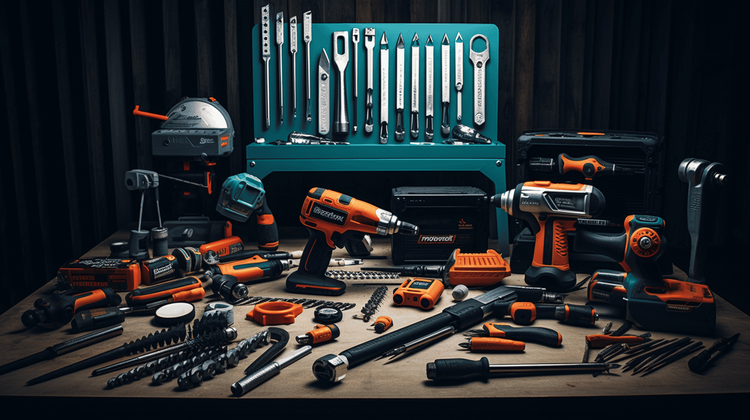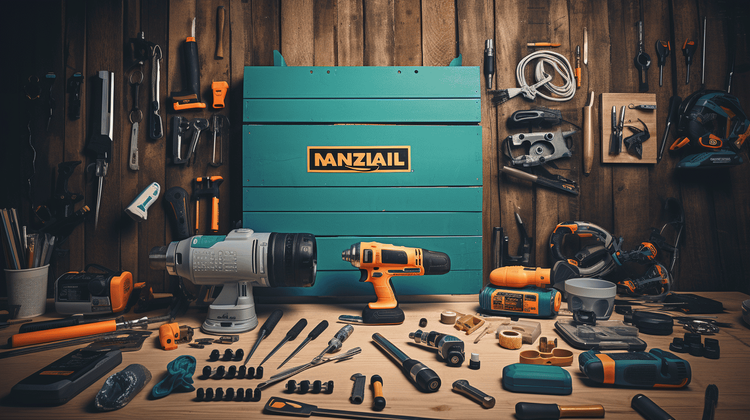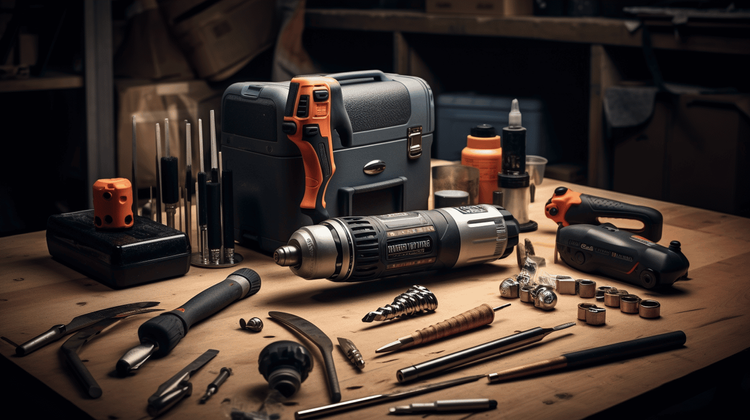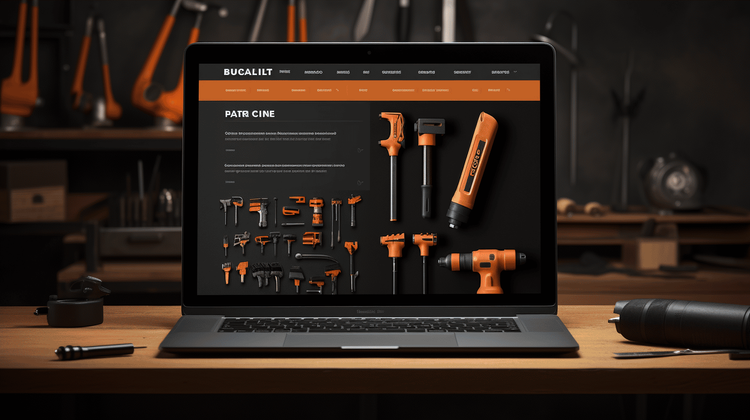Bargain Hunting: How to Find Low-Cost Tools for DIY Projects
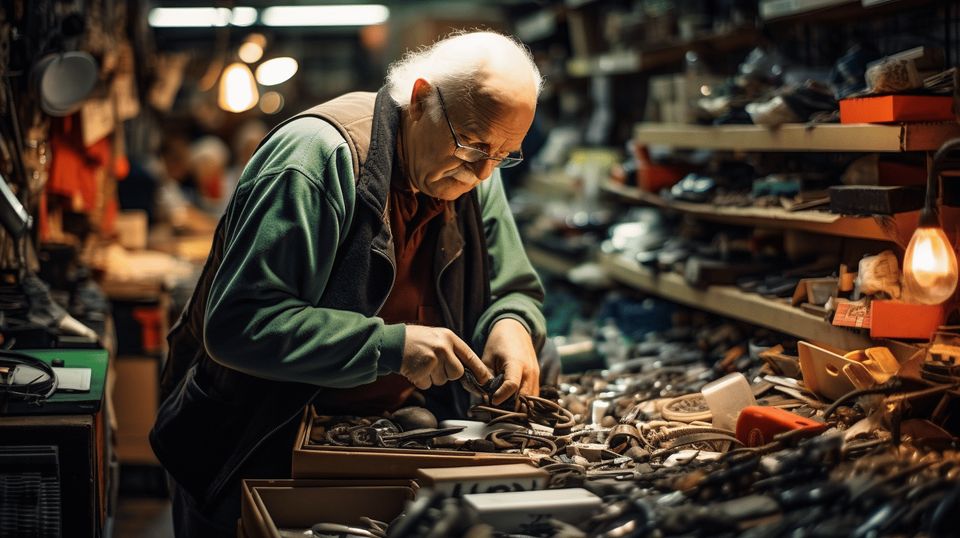
Embarking on a do-it-yourself (DIY) project can be an exciting adventure that unleashes your creativity. Whether you're remodeling a room, constructing a piece of furniture, or simply fixing a leaky faucet, DIY projects provide an amazing sense of accomplishment. However, these ventures could be intimidating for beginners, especially when it comes to amassing the essential tools.
Fear not, for we will guide you on the path to acquiring affordable high-quality tools, which is an art in itself. Through this article, you will learn tricks and tips to help you find bargain tools that don't break the bank, yet are perfect for your DIY projects. We'll delve into finding power tool discounts, investing wisely in essentials like screwdrivers, leaning towards multipurpose tools, choosing suitable tool storage, exploring the used tool market, and even considering renting tools for rare use.
You certainly don't need to spend a fortune to start your DIY journey. With careful planning and savvy purchasing, you'll have your tool collection ready in no time while keeping your budget intact. This article is your one-stop guide to becoming a wise tool buyer and being well-equipped for your DIY endeavors. Let's dive in and start hunting for those affordable gems!
Finding Power Tool Deals and Discounts
In a world where DIY projects are becoming more popular by the day, power tools and their myriad uses have taken center stage. From minor house repairs to full-blown home renovation projects, power tools have proven to be indispensable companions. It’s as clear as can be that having the right power tool can do wonders for a project, but so can getting a power tool at the right price! Finding power tool deals and discounts is indeed essential for keeping project costs low without sacrificing quality. Now, where could you snag yourself these deals? Let's dive into the details.
Retailers Offering Discounts
The first step in embarking on your power tool bargain hunting journey is knowing the right places to look. Retailers across the board offer deals, coupons, and discounts to woo customers and boost their sales. Among them, Home Depot, Lowes, and Acme Tools stand out as popular options. They offer a wide variety of power tools, from drills and hammer drills to circular saws and air compressors, catering to every kind of DIY enthusiast out there.
- Home Depot is a household name in home improvement and constantly features deals on power tools.
- Lowes, known for its comprehensive range of hardware products, often rolls out savings opportunities for power tools.
- Acme Tools, though a bit less known, offers an exceptional selection of top-brand power tools at discounted prices.
These stores regularly hold sales events, offer coupons, and have clearance sections that are worth keeping an eye on.
Discount Range
Of course, the discount range on power tools can vary significantly based on several factors, including the brand, the model, and the retailer. However, trends suggest that discounts can range from a minimum of 50% to a mouth-watering maximum of 90% on select power tools.
Of the numerous brands available, DEWALT and Craftsman are worth watching closely. They often have promotional deals offering fantastic value for money. From combo kits that pack multiple tools into a budget-friendly deal to mark-downs on individual tools, there's a good chance you can find some excellent deals that will save you a pretty penny.
Cracking the code of finding the best power tool deals and discounts is all about staying alert, doing some research, and sometimes, being a little patient. Remember, investing in the right tool can lead to project success. And if the tool in question comes with a hefty discount, then that's a DIY victory on all fronts. Keep your eyes peeled, and happy hunting!
Investing in Essential Screwdrivers
Starting off your toolbox can be a daunting task, with a multitude of choices to consider. However, one tool that you absolutely cannot do without is the humble screwdriver. It is versatile, manageable, and undeniably vital to almost any DIY project. But with the wide array of options available, you might wonder where one should begin. Look no further - your first investment should undoubtedly be a flat head screwdriver.
Starting with a Flat Head Screwdriver
For the novice handyman or the seasoned professional, a flat head screwdriver is recommended as a starting point. This handy tool has a slim, flat blade that matches the shape of the slot in the screws it's designed to turn. It’s an old faithful in the toolbox; not just for its compatibility with flat head screws, but for its simplicity and versatility too. A surprise to many, it can even double up as a makeshift chisel or a scrape -talk about a versatile tool!
But a single flat head screwdriver won’t solve all your problems. Different tasks call for different tools, which brings us to our next point.
Importance of Variety
Investing in a variety of screwdrivers is as essential as having a good range of ingredients when cooking. Whether it’s dismantling a laptop, assembling a shelf, or tuning a guitar, each task requires a specific tool for the best results. Here are a few more types of screwdrivers you should consider adding to your toolbox:
- Phillips screwdriver: Recognizable for its distinct “X” shaped point, this is vital for handling cross-recess screws.
- Torx Screwdriver: Known for its six-point star-shaped pattern, it provides higher torque application.
- Hex Screwdriver: Used for hexagonal screw heads, this is an absolute must for anyone dabbling in electronics.
- Robertson Screwdriver: The iconic square-shaped head is perfect for deck construction and woodworking.
Having a wide selection of screwdrivers is not about quantity over quality. Instead, it's about having the right tool for the job. Equipped with the right set, you’ll spend less time struggling with ill-fitting tools and more time successfully completing projects.
Incorporating these suggestions into your toolbox decisions will empower you to face any DIY challenge head-on. Your investment will pay dividends in the form of ease of work and the pride of accomplishing tasks on your own. So, get out there and start building your all-inclusive screwdriver set!
Saving Money with Multipurpose Tools
In a world fixated on convenience, homeowners and DIY enthusiasts today are always searching for ways to optimize their toolboxes, and a reliable solution lies in multipurpose tools. But why upgrade our toolkit with these multifaceted gadgets? Let's take a dive into the world of multipurpose tools and uncover how they can help us save money.
Advantages of Multipurpose Tools
Multipurpose tools, as their name suggests, perform multiple functions. This versatility alone offers several advantages over the more traditional single-purpose tools. However, tying these benefits with economical living may not seem direct or straightforward, so let's break things down.
- Reduced Acquisition Cost: Buying a single multipurpose tool is often more cost-effective than purchasing each tool separately. When you consider the acquisition cost, these do-it-all gadgets actually save you money in the long run.
- Less Storage Space: Space is a crucial — and often overlooked — part of practicality. When you have one tool that can do the job of many, your toolbox becomes less cluttered, and you save room for more important items or a cleaner work area.
- Easier Maintenance: The more tools you have, the harder it is to maintain them. With multipurpose tools, you're reducing the number of items you need to keep up with, which means less time and money spent on maintenance.
- Greater Convenience: Whether you're out on a job or at home in your garage, carrying around numerous tools can make things difficult. Multipurpose tools offer convenience by fitting many functions into a single unit that's easily portable.
As Jack of all Trades notes, it's better to be useful in many scenarios than excellent in just one. The same principle applies to our tools. Multipurpose tools break down the proverbial walls that segregate versatility and cost-effectiveness. It's evident that they save money and storage space by combining multiple functions into one tool, and it's the kind of intelligent refinement our modern world appreciates.
So, the next time you find yourself navigating aisles in your local hardware store or surfing eCommerce sites in search of a new tool, consider multipurpose ones. They may not be perfect for every single task, but they will undoubtedly save you money and make your life much easier in the long run.
Choosing the Right Tool Storage
When beginning a voyage into the world of DIY or home improvement, the organization of your tools can make all the difference. A universal truth known by all skilled artisans and hobbyists alike is this: A well-organized workspace boosts productivity while simplifying tasks. This brings us to an essential aspect: choosing the right tool storage.
Starting with a Modest Tool Box
Beginners may find themselves overwhelmed by the sheer number of tools available on the market. While many will be indispensable along your DIY journey, purchasing them all at once may pose a significant financial burden, let alone the dilemma of where to store them.
This is where a modest tool box comes handy. Not only is it relatively modest in price, but it's also perfect for housing a growing collection. Don't be seduced into buying a full-scale tool chest too soon. A smaller, more manageable tool box is a good fit when you're just starting out. Consider it as your first stepping stone in the vast river of DIY.
Here's why starting small is a smart move:
- Practicality: Smaller tool boxes are portable and easy to store, making them ideal for smaller workspaces or on-the-go projects.
- Affordability: Modest tool boxes are much more budget-friendly compared to larger tool storage solutions.
- Growth Mindset: As your tool collection grows, so can your storage. Upgrading to a larger box or even a tool chest later allows you to understand your own storage needs better.
As the saying goes, "Don't run before you can walk." Begin with a relatively modest and inexpensive tool box, and upgrade as your tool collection grows. This gradual approach not only keeps your tools in check but also allows an appreciation for the joy of DIY to develop naturally. Happy organizing!
Buying Used Tools
For the savvy DIY enthusiast, buying used tools can be an economic and environmentally-friendly practice. It's a fantastic way to get your hands on top-quality equipment without breaking the bank. However, there are a few crucial aspects to consider when embarking on the journey to pre-loved tools. From understanding what to look for to ensure that you're getting something worth your hard-earned cash, to knowing where to find these treasures, we've got you covered. Let's dive right into some helpful tips for buying used tools.
Tips for Buying Used Tools
When delving into the used tools market, having a strategy is key. Here are a few clear-cut guidelines that can help make your hunt much smoother:
- Understand the market: Research prices for new equipment, so you know what a good deal for a used tool looks like. Secondhand markets typically price items lower, but some sellers may attempt to inflate prices, so stay informed.
- Examine for wear and tear: Excessive wear often indicates that the tool may not last. Look for obvious signs of damage, such as broken parts, or signs that it's been poorly maintained, like rust or worn out wiring.
- Test before buying: If possible, always test the equipment first. This will give you an idea of its functionality and may help identify any hidden issues.
- Know the Brand: Familiarize yourself with quality brands and their reputations. High-quality tools often last longer, even when bought second-hand.
Buying used tools is a cost-effective way to save money for DIY projects. Not only can secondhand tools deliver on par with new ones, but they also help reduce waste by extending their lifespan. Happy hunting, and remember, the key is patience and knowledge. Enjoy the hunt and the rewarding feeling of finding your perfect tool at a fraction of the cost.
Must-Have Tools for DIY Projects
When launching into any DIY (Do-It-Yourself) project, it is vital to have the right tools at your disposal. Armed with the appropriate gadgets, you can turn any DIY project from a dream into reality. This section will whisk you through the must-have tools for DIY projects. Whether you're handling a major home upgrade or purely crafting for leisure, understanding how these tools work can save both time and resources.
Drill
The drill tops the list of essential tools for any DIY enthusiast. Known for its versatility, you can use a drill for various tasks such as making holes in wood or driving screws. Drills come in two types: corded and cordless. While corded drills offer more power, cordless drills offer convenience and are perfect for most home DIY projects.
Circular Saw
Next up is the circular saw. If your project involves cutting wood or other hard materials, then a circular saw is a necessity. It’s fast, efficient, and can handle both straight and bevel cuts. Circular saws come in two variations, corded and battery-powered, but regardless of which you choose, they are sure to add immense value to your DIY tool kit!
Measuring Tape
In DIY projects, precision is key. That's why a measuring tape is indispensable. It fosters accuracy in marking and cutting materials and helps to avoid waste due to errors. Always remember the carpenter's rule: "Measure twice, cut once."
Screwdrivers
Last, but certainly not least, are screwdrivers. Essential for undertaking any DIY project, screwdrivers come in handy when it comes to assembling and disassembling structures. They come in different shapes and sizes, including flat-head and Phillips head, ensuring you've got the right tool for any job.
To wrap it up, these tools are the cornerstone of any DIY project. Having them within arms reach not only makes your project go smoother but also ensures it is a fun and gratifying experience. So before you start your next DIY project, make sure you've got a drill, circular saw, measuring tape, and set of screwdrivers in your kit. Happy crafting!
Renting Tools on a Budget
Renovating, landscaping, or tip-to-toe revamping your space can be a thrilling experience. However, one major stumbling block can be the cost of all the tools needed for the job. Fear not, budget-conscious project mavericks, there is a practical solution. You might not have considered this - renting tools. It might be an obvious choice for contractors, but it's becoming increasingly popular among homeowners. Plus, it's a secret budget hack that not everyone is talking about, but should be.
Option of Renting Tools
Renting tools can be a cost-effective way to undertake a project without burning a hole in your pocket. Here's why it's a true game changer:
- Variety of Tools: Hardware stores and equipment rental services offer a wide range of tools. From power drill machines to deck sanders, you'll find everything you require for your project. This is handy if you need a tool just once or twice and buying it outright doesn't make financial sense.
- Cost-Efficiency: Renting tools, especially costly ones, allows for significant savings. Also, in cases where you need a tool temporarily, the choice is quite straightforward: rent, don't buy.
- Latest Equipment: Rental businesses usually have the most advanced tools. You can use cutting-edge technology without shelling out top dollar to buy it.
- Storage Space: Tools, especially large ones, take up space. If you're short on it, renting is the way to go.
- Maintenance Free: Ever bought a tool only to have it die on you? Renting allows you to avoid maintenance costs as they fall upon the rental company.
It's clear that when you're on a budget, renting tools is a smart strategy. Many hardware stores offer rental services right alongside their traditional sales. So, next time you're considering a big project that requires a tool you don't already own, don't let your budget hold you back. Consider tool rental as a valid option, and you might just find it's the budget-friendly solution you've been looking for.
Keep in mind, though, that while it's economical in many cases, make sure renting suits your project needs. If budget is a concern, consider renting tools from hardware stores for specific projects. With thoughtful planning and strategic decision-making, you have the power to stay in control of your project's budget without breaking the bank.
Conclusion
Bargain hunting for DIY tools doesn't have to be a daunting task, provided you know where to look and what to look for. From finding powerful discounted tool deals to investing wisely in essential items, like a variety of screwdrivers, the journey to equipping yourself for your DIY projects can be an exciting time.
Multipurpose tools can offer a cost-effective alternative for the budget-conscious, proving their weight in gold by performing numerous tasks with a single investment. But remember, the key to longevity of your tools lies in proper storage. It's worthwhile starting with a modest toolbox and growing it as you buy more tools.
Used tools or renting tools can be a great budget alternative for projects that require highly-specialized or rare equipment. Of course, having a set of must-have tools such as a drill, circular saw, measuring tape, and screwdrivers always come handy. As a valued customer, allow Ultra Handy to assist you in your DIY journey, helping you succeed in every step of the way.
So, get your hands dirty and start creating amazing things!
Frequently Asked Questions
- Where can I find low-cost tools for DIY projects?You can find low-cost tools for DIY projects at local thrift stores, garage sales, online marketplaces like eBay, Craigslist, or Facebook Marketplace, and even at hardware stores during sales or clearance events.
- Are cheap tools of good quality for DIY projects?Cheap tools may not always be of the best quality for DIY projects. It's recommended to research and read reviews before purchasing inexpensive tools to ensure they are durable and suitable for your specific project needs.
- What are some essential low-cost tools for DIY projects?Some essential low-cost tools for DIY projects include a hammer, screwdrivers (both flathead and Phillips), adjustable wrench, tape measure, utility knife, pliers, level, and a set of basic power tools like a drill and a jigsaw.
- How can I save money on tools for my DIY projects?To save money on tools for DIY projects, you can consider borrowing from friends or family, renting tools for one-time use, attending tool swaps or community tool-sharing events, or joining local online groups where members sell or exchange tools at lower prices.
- Are there any online resources for finding low-cost tools for DIY projects?Yes, there are various online resources for finding low-cost tools for DIY projects. Websites like Freecycle, Letgo, and Nextdoor often have free or heavily discounted tools available, and online forums and communities like Reddit's DIY section often have users sharing tips and deals on affordable tools.
